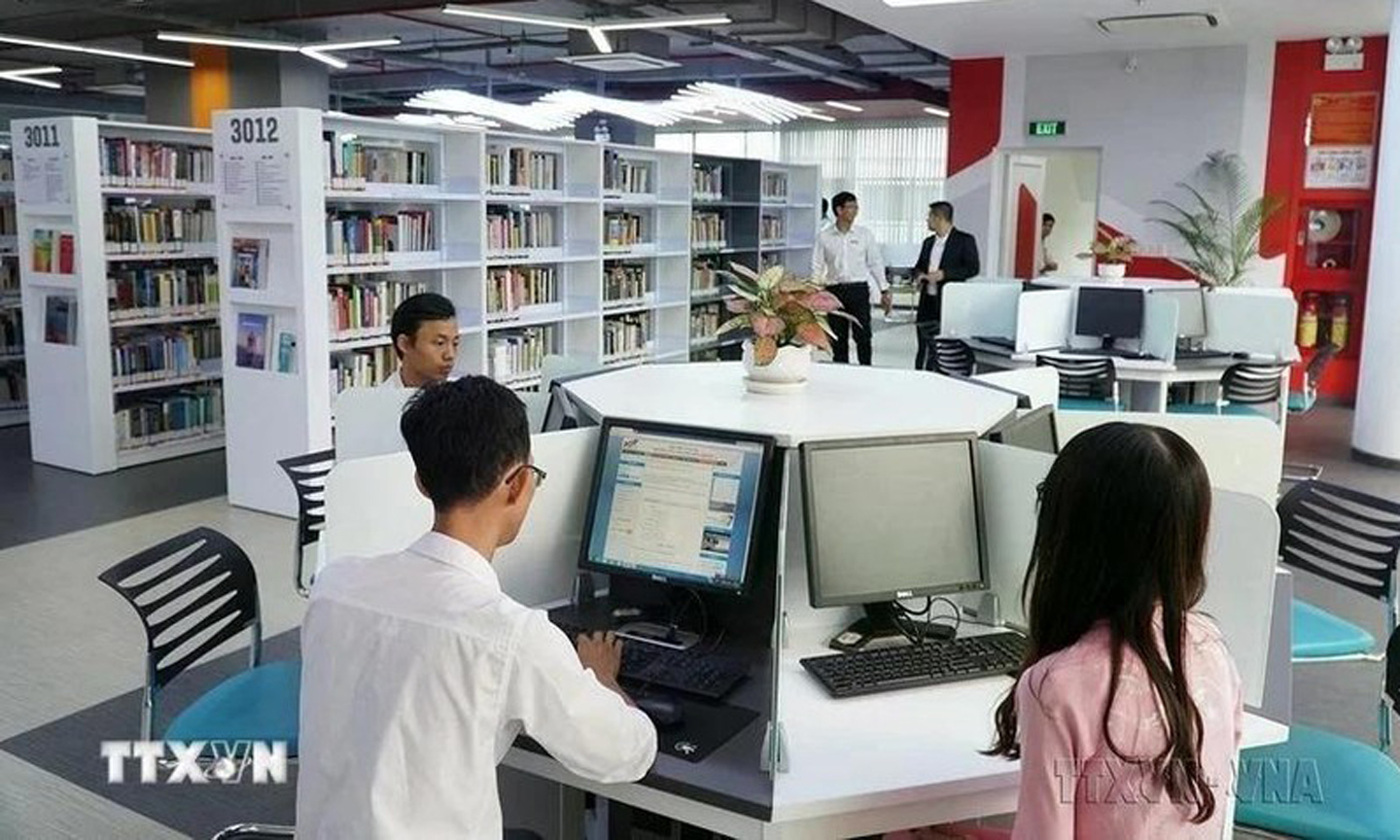Vietnam calls for global actions to promote green transition
ABO/NDO- Minister of Science and Technology Nguyen Manh Hung has called for global action, the strengthening of multilateral cooperation, the creation of new models of partnership, the sharing of experience and technology, and support for developing countries in green transition.
Addressing a ministerial discussion on breakthrough technologies for green transition and sustainable development in the intelligent age in Hanoi on April 17 within the framework of the 4th Partnership for Green Growth and the Global Goals 2030 (P4G) Summit, Hung said that Vietnam is committed to achieving net-zero emissions by 2050.
Vietnam is among the first countries to develop a national action plan to implement the 2030 Agenda, shifting from a traditional growth model to one based on green growth and digital economy, he noted.
The minister described these as bold commitments, intentionally placing pressure on the country to unlock Vietnamese intelligence and seek global innovation in order to solve the challenge of green development for both Vietnam and humanity.
 |
| The Inspire Library of Ton Duc Thang University in Ho Chi Minh City with services modeled after the libraries of the world's Top 100 universities. (Photo: VNA). |
According to the minister, green and sustainable development must be based on science and technology, innovation, and digital transformation. Likewise, the development of science and technology, innovation, and digital transformation must serve the goal of green and sustainable development. Vietnam has placed all three under the same state management body, viewing them as strategic choices and top priorities, he stated.
Regarding the application and development of new technologies, Hung said that Vietnam considers breakthrough technologies such as hydrogen, next-generation batteries, low-carbon technologies, and circular economy technologies as fundamental to green transition. Meanwhile, new-generation digital technologies including AI, IoT, Big Data and semiconductors are seen as key elements of this transition. These technologies have been selected by the Vietnamese Government as strategic technologies for prioritised development.
Hung noted that, like many countries around the world, Vietnam considers AI to be the core technology of the Fourth Industrial Revolution. Vietnam's digital transformation is evolving into AI transformation. However, Vietnam’s approach to AI is one where it does not replace humans, but rather enhances human capabilities. AI is viewed as an assistant to humans, making all activities smarter, more efficient, and thereby more resource-saving.
The minister underscored that green and digital are liken to twins, in which green requires digital, explaining that in a digital environment, material consumption is reduced.
To achieve green transition, there must be green standards, he said, adding that standards play a guiding role in a nation’s development. Green transition is a global issue, and cooperation is needed to develop a shared global system of green standards, he emphasised.
Regarding the efficient use of available resources from natural resources, energy, and knowledge to data and capital, Hung pointed out that humanity has not yet used these resources effectively. Only around 7.2% of materials are recycled, over 30% of food is wasted, energy efficiency stands at just 30-40%, only 5% of data is analysed and utilised effectively, and merely 2% of global financial assets are invested in green and sustainable development.
The minister proposed setting up a website to help P4G countries, corporations, and companies quickly and easily access information on green technologies and experiences. Additionally, he suggested establishing an “open innovation model” among P4G member states to act as a bridge between solution and technology providers, and corporations and organisations in need of green transition.
Co-chairing the session with the Vietnamese minister, Kenyan Minister of Defence Hon. Soipan Tuya acknowledged the vast potential of AI in fields such as finance, energy, and agriculture, among others. However, she also warned of the risks, including job losses, data insecurity, and widening technological and digital divides. "The question is how can technology be leveraged to promote green transition and sustainable development?" she remarked.
As a personal recommendation, Hon. Soipan Tuya stressed the need for increased investment in AI infrastructure to build a robust AI ecosystem, expand AI-related innovation, and provide reliable and high-speed internet connections. In addition, low-cost data systems are needed to make cloud computing more accessible, thereby reducing costs for startups and researchers, supporting domestic AI solutions, cutting reliance on foreign servers, and encouraging the development of sustainable local data centres.
Delegates at the event discussed three key areas - leveraging digitalisation and AI to reduce emissions and optimise resources; promoting public-private partnerships to maximise the potential of innovation in green transition; and overcoming technical, infrastructure, and data security barriers to advance the application of technology.
(Source: NDO)
 về đầu trang
về đầu trang







